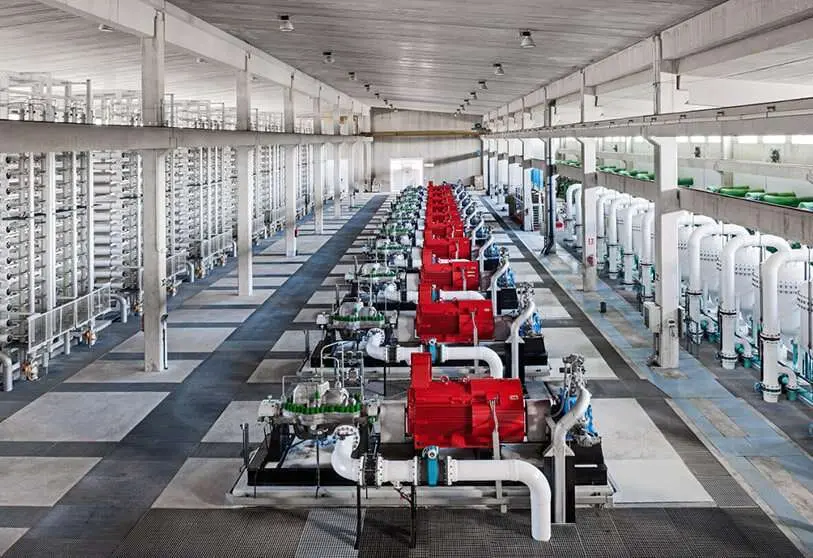El megaproyecto de la planta desalinizadora de Casablanca despierta el interés de seis consorcios internacionales

The Casablanca desalination plant project is moving forward. The structure, which is expected to have a capacity of 548,000 m3 per day and with the possibility of transforming more than 822,000 m3 of salt water into drinking water daily, is beginning to take shape and its construction will start next year. The ONEE - Morocco's National Office of Electricity and Drinking Water - has just announced that six international consortiums are the candidates to carry out the megaproject.
These companies submitted their dossier to ONEE a few months ago and one of them will be chosen to implement the idea. The winner of the competition will be awarded a contract estimated at more than 800 million euros to carry out its construction and commissioning.
In first place are three consortiums made up of four Spanish companies that have teamed up with other international firms to be the candidates. The first is the Abengoa group together with its French partner Engie. This Spanish firm is not new to this type of project in the Kingdom and is in charge of building the world's largest desalination plant, located near Agadir. It will have a surface area of 275,000 cubic metres and its operation will be managed by this group for the next 27 years.
In second place is Acciona, which has formed an alliance with Afriquia Gaz and Green of Africa to be chosen. The latter two are subsidiaries of the Akwa Group. On the other hand, there is Tedagua, which has signed a partnership with the Saudi companies Acwa Power, Sepco III and the Moroccan company Flipar Power Holding. Lastly, ONEE has chosen Lantania. This group already has experience working in Morocco, as it is currently building the new wastewater treatment plant in the city of Salé.
However, three other non-Spanish international consortia are vying to win the tender. Among them is the Moroccan company Nareva, in an alliance with Suez, CIMR and the Japanese brand Itochu. The French brand Veolia has also shown its interest and has formed a team with the Emirati group Taqa. The Moroccan companies Somagec and SGTM, leaders in this type of project in Morocco, have also joined forces with the Israeli company IDE Technologie and the Japanese group Mitsui to opt for first place among the candidates.
The future desalination plant project promises to solve several of Morocco's water problems. Initially, this construction will strengthen and secure the drinking water supply in the Moroccan region of Casablanca-Settat, but it will also provide clean water to farmers to meet their irrigation needs for a perimeter of 5,000 hectares.

The latest drought has left Morocco unable to cope with the passing of this meteorological effect. Described as one of the worst in the last three decades, this drought has led the Kingdom to take drastic decisions such as restrictions on the use of water for Moroccans and the loss of numerous crops that could not be irrigated, thus destabilising agricultural activity in the Maghreb country.
With the creation of several water processing plants, this problem would cease to exist and water could be supplied to all the country's citizens. The government has already acted, and has therefore launched the construction of 20 more plants, distributed throughout the country. The main objective of these projects is to release water from the dams to deal with this crisis and it is hoped that by 2030, they will all be operational.
It is intended that these constructions will use renewable energies and, in this way, Morocco will continue to contribute to the fight against climate change with sustainable projects. These drinking water factories will be powered mainly by solar and wind power plants, which will allow them to carry out their function in a clean and environmentally friendly way.








